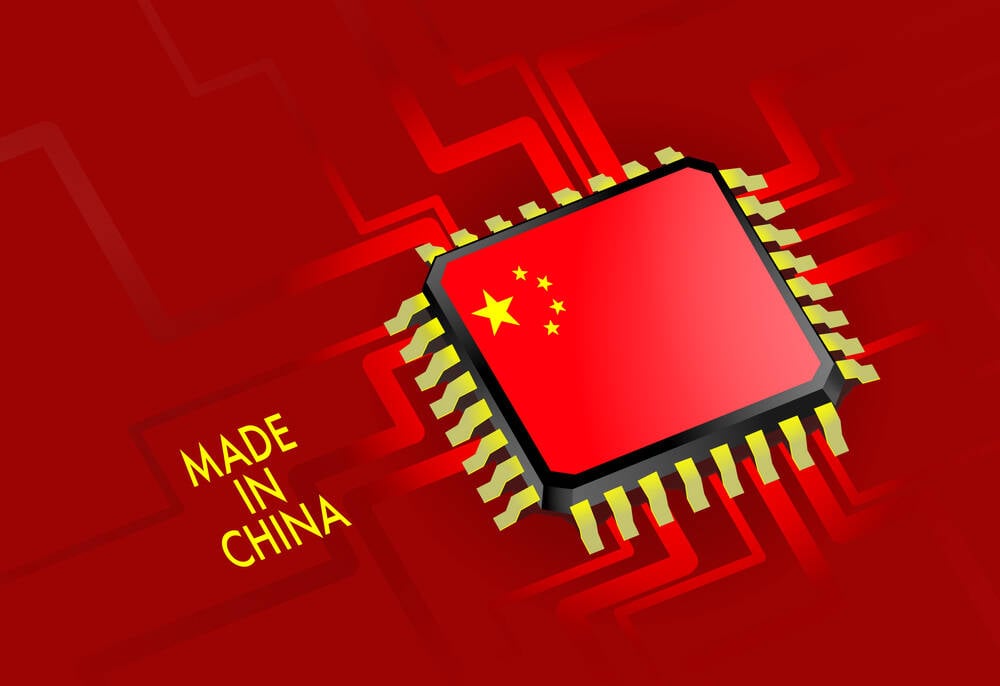Arm China Lays Off Staff Amid Chip War And Licensing Concerns

Arm may be doing well, but its China-based joint venture has reportedly laid off a significant number of staff in the face of a challenging business outlook.
Arm China has shed about 90 to 95 employees, according to Reuters, which would represent about 14 percent of the entire operation's workforce, understood to be in the region of 700 personnel before the changes.
Reuters cited sources "familiar with the situation" who said the layoffs chiefly comprised engineers involved with research and development.
These sources indicated that some of Arm's customers in China are concerned about developments such as the ongoing semiconductor war between Washington and Beijing, which may potentially lead to them being denied access to Arm technology.
The Register reported late last year that ecommerce giant Alibaba was not being granted access to Arm's high performance Neoverse V-series core designs for its cloud datacenters because Arm believed the US and UK governments would block the export of that technology.
Chinese customers are also said to be concerned about speculation that Arm is set to make major changes to its licensing model, which are allegations made by chipmaker Qualcomm as part of its ongoing legal row with Arm.
Arm China is the distributor for Arm intellectual property in the country, and thus collects licence payments on behalf of the chip designer. However, Arm's parent SoftBank sold off a 51 percent stake in the company back in 2018, so Arm China effectively operates as an independent entity majority owned by Chinese investors. It is also free to develop its own IP, which may include non-Arm technology.
- 5% of the cloud now runs on Arm as chip designer plans 2023 IPO
- Arm still strong despite SoftBank loss as shipments pass a quarter of a trillion
- Techies ask PM to 'prepare UK chip strategy as a matter of urgency'
- UK gov makes fresh grab at Arm to list IPO in London
This model of ownership has proven troublesome for Arm and SoftBank. In 2020, Arm China CEO Allen Wu was fired over alleged conflicts of interest and violations of the company's code, but Wu refused to go or hand over the official seal and documents that would have allowed the appointment of a new leader. The situation was reportedly resolved last year.
We asked Arm for its response to the situation, and a spokesperson told us: "Arm China is a separate company from Arm Ltd, and while we cannot comment on its personnel decisions, we do not expect any disruption to our business in China which continues to remain strong."
Arm made layoffs worldwide last year, with the company losing around 20 percent of its UK workforce, as we reported at the time. The chip designer had said this was necessary in the aftermath of its failed sale from SoftBank to GPU giant Nvidia.
Since then, the company has reported decent results, with revenue for the quarter to the end of December up 28 percent against the same period a year earlier and also up on the preceding quarter.
SoftBank claimed last week that Arm-based chips now power as much as 5 percent of cloud services, thanks to adoption by AWS, Microsoft Azure and Google Cloud.
Arm CEO Rene Haas also said last week that the company is committed to completing its initial public offering and floating on the stock market before the end of this calendar year. ®
From Chip War To Cloud War: The Next Frontier In Global Tech Competition
The global chip war, characterized by intense competition among nations and corporations for supremacy in semiconductor ... Read more
The High Stakes Of Tech Regulation: Security Risks And Market Dynamics
The influence of tech giants in the global economy continues to grow, raising crucial questions about how to balance sec... Read more
The Tyranny Of Instagram Interiors: Why It's Time To Break Free From Algorithm-Driven Aesthetics
Instagram has become a dominant force in shaping interior design trends, offering a seemingly endless stream of inspirat... Read more
The Data Crunch In AI: Strategies For Sustainability
Exploring solutions to the imminent exhaustion of internet data for AI training.As the artificial intelligence (AI) indu... Read more
Google Abandons Four-Year Effort To Remove Cookies From Chrome Browser
After four years of dedicated effort, Google has decided to abandon its plan to remove third-party cookies from its Chro... Read more
LinkedIn Embraces AI And Gamification To Drive User Engagement And Revenue
In an effort to tackle slowing revenue growth and enhance user engagement, LinkedIn is turning to artificial intelligenc... Read more

